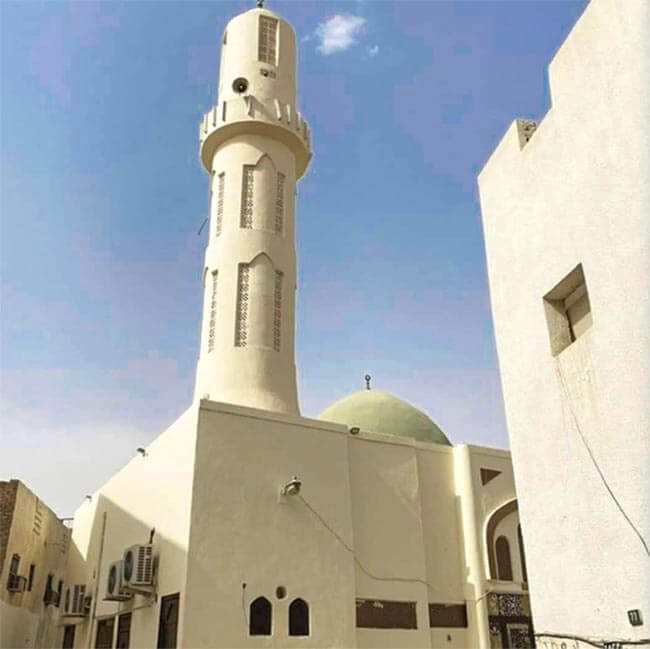In the sacred city of Madinah, nestled in the area once inhabited by the Bani Haram tribe, stands a modest yet historically significant mosque known as Masjid Bani Haram. This revered site, though not widely celebrated among contemporary landmarks, carries with it the memory of an extraordinary event that unfolded during one of the most trying periods in early Islamic history, the Battle of the Trench, also known as Ghazwat al-Khandaq.
Masjid Bani Haram was located close to the tribal homes of Bani Haram and served as a key site during the Prophet Muhammad’s (peace be upon him) strategic preparations for the battle. It was near this location that the early Muslim community, facing immense hardship and danger, had set up temporary encampments while digging a massive trench as a defensive barrier against the advancing Quraysh forces and their allies. The trench, a novel military strategy suggested by the Persian companion Salman al-Farsi, proved crucial in delaying the enemy’s assault.
Within this landscape of urgency and sacrifice, a remarkable incident of divine provision and unwavering faith took place at the home of Jabir ibn Abdullah (may Allah be pleased with him), a devoted companion of the Prophet (PBUH). Jabir (RA) lived close to the present location of the mosque, and during the severe food shortages of the time, he noticed signs of hunger and fatigue on the face of the Prophet Muhammad (PBUH). Moved by concern, Jabir returned home and informed his wife of the situation. They only had a small sheep and a handful of barley left, barely enough to feed a few people.
Nonetheless, with sincere intention and unwavering generosity, Jabir asked his wife to prepare the modest meal. His initial plan was to quietly invite the Prophet (PBUH) alone so he could eat and regain his strength. However, when Jabir extended the invitation, the Prophet (PBUH) smiled, held Jabir’s hand, and announced that all of his companions should come for the meal. Rather than expressing worry, Jabir remained calm, placing his trust in Allah, and proceeded back home with the Prophet’s instruction not to light the fire or bake the bread until he arrived.
What followed is remembered as one of the clear signs of divine blessing. Upon arrival, the Prophet Muhammad (PBUH) himself participated in preparing and serving the food. He covered the pot of meat and the dough and served groups of ten companions at a time. To the astonishment of everyone present, the food continued to suffice as more and more companions were fed in successive batches of ten. The pot remained filled, and the oven kept producing bread, until every guest had eaten their fill.
Even after feeding the large number of companions, there was still food left. The Prophet (PBUH) then instructed Jabir to distribute the remaining meat and bread to others who had not yet eaten. It was a moment that left the companions in awe, a small amount of food had, by the will of Allah, satisfied the hunger of many.
The story of the miraculous meal at Jabir’s home, now commemorated by the presence of Masjid Bani Haram, continues to echo the values of faith, hospitality, and trust in divine provision. In an era where many face uncertainty and scarcity, the legacy of this small mosque and the event tied to it offers a powerful reminder that sincerity and reliance on Allah can open the doors to unexpected blessings. For pilgrims and visitors tracing the footsteps of the Prophet (PBUH), Masjid Bani Haram stands as a quiet testament to the miraculous moments that shaped Islamic history.

